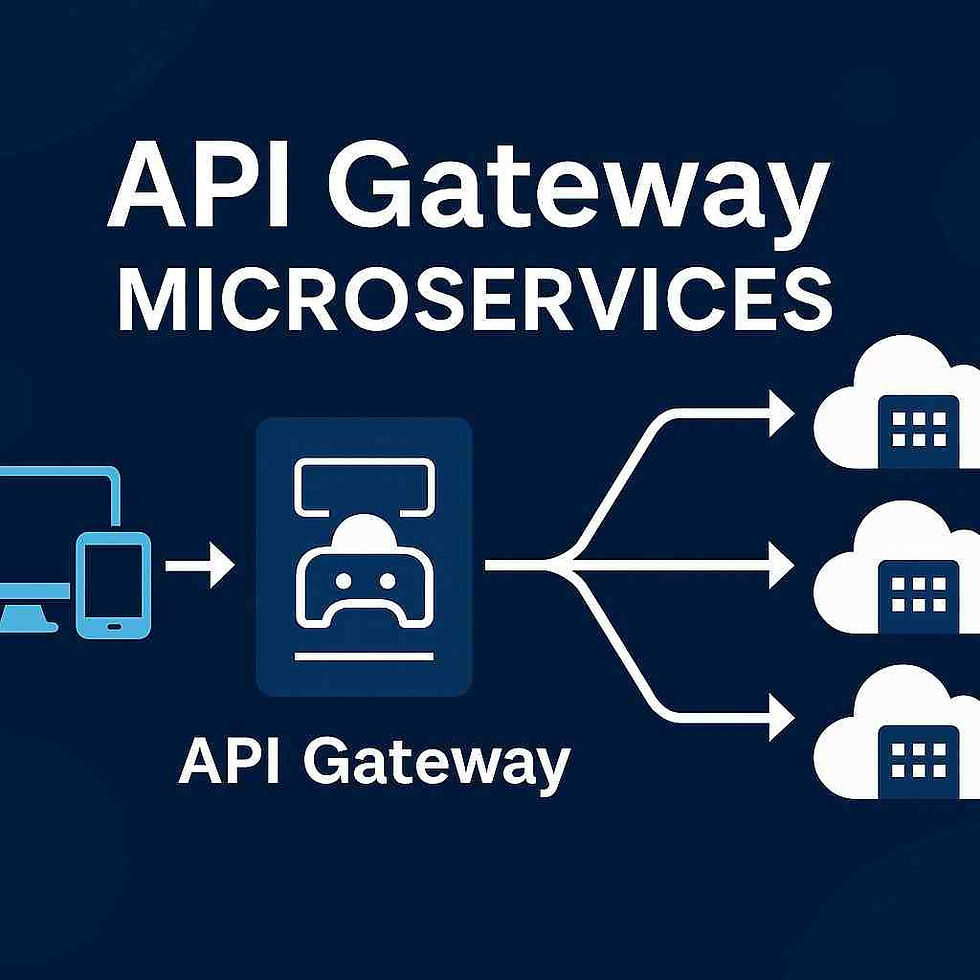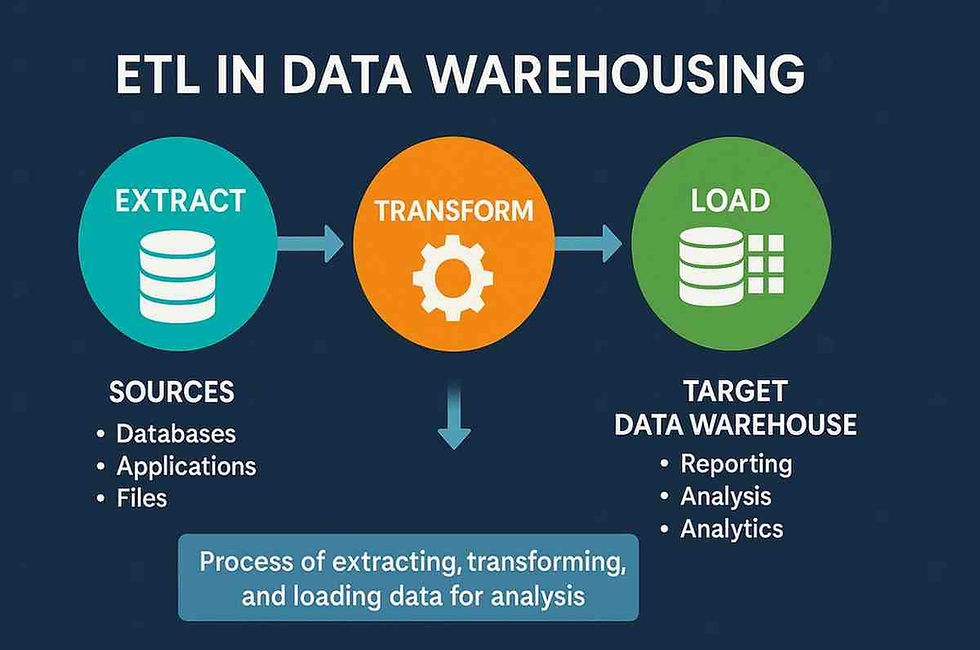Guide to AWS Device Farm Devices for 2024
- Gunashree RS
- Sep 26, 2024
- 8 min read
In today's fast-paced development environment, ensuring that mobile apps and web applications perform flawlessly across different devices and operating systems is more important than ever. Users expect seamless experiences, whether they are using iOS or Android, on any device or browser. This demand for consistent performance has led to the rise of automated testing platforms like AWS Device Farm—a powerful service that allows developers to test applications on real devices hosted in the cloud.
AWS Device Farm provides a scalable and secure environment for running automated tests on physical devices, including a wide range of mobile phones and tablets. It removes the need for maintaining an expensive and extensive in-house device lab, ensuring that developers can focus on improving app performance and delivering bug-free software.
In this article, we'll explore the various features, benefits, and configurations of AWS Device Farm devices, giving you a detailed understanding of how this service can be integrated into your DevOps pipeline for efficient mobile testing.
What is AWS Device Farm?
AWS Device Farm is a cloud-based mobile app testing service provided by Amazon Web Services (AWS). It allows developers and QA teams to test their mobile applications on a variety of real physical devices in the cloud. These devices cover a wide range of makes, models, and operating systems, from the latest Android and iOS devices to older models that your users might still be using.
AWS Device Farm eliminates the need for setting up and managing physical devices in-house, enabling developers to run automated or manual tests on real devices, ensuring that their app works as expected across different platforms.

Key Features of AWS Device Farm:
Real Devices: Test on hundreds of physical devices with unique configurations, operating systems, and hardware specs.
Cross-Platform Support: Supports Android, iOS, and web apps.
Automation Frameworks: AWS Device Farm integrates with popular test automation frameworks, including Appium, Selenium, XCTest, Espresso, and Calabash.
Scalability: Simultaneously run tests across multiple devices to speed up testing and get feedback faster.
Security: Devices are isolated to ensure that no data leakage occurs between test environments.
Extensive Reporting: View detailed reports with screenshots, logs, and performance data, making it easier to debug issues.
Why AWS Device Farm Devices are Essential for App Testing
The demand for mobile applications is continuously growing, and users expect apps to work perfectly across a broad range of devices. AWS Device Farm offers a convenient solution to ensure apps meet these expectations by providing access to hundreds of real devices. Testing on physical devices, rather than emulators or simulators, offers many benefits, including:
Real-World Conditions: Physical devices replicate the true environment in which your app will run. You can test factors like memory usage, CPU performance, screen resolution, battery consumption, and more.
Device Fragmentation: With thousands of different devices available, it's impossible for most companies to maintain a physical lab that covers every possibility. AWS Device Farm provides access to a vast library of devices, ensuring that your app works across the board.
Cross-Browser Testing: You can test your web apps across various browsers like Chrome, Safari, and Firefox on mobile devices, ensuring the UI and functionality are consistent across browsers.
Setting Up AWS Device Farm for Mobile Visual Testing
When testing on AWS Device Farm devices, you can choose between manual testing or automated testing. For automated testing, you can upload your scripts created using popular frameworks like Appium, Selenium, XCTest, and others. Manual testing allows you to remotely interact with devices in real-time.
Steps to Get Started:
Sign up for AWS: Create an AWS account if you don’t have one already.
Create a Device Farm Project: In the AWS console, navigate to Device Farm, and create a new project for your tests.
Choose Your Devices: Select the mobile devices on which you want to test. AWS Device Farm allows you to choose from hundreds of real devices, including both Android and iOS devices.
Upload Your Application: Upload your app package (.apk for Android or .ipa for iOS) to Device Farm.
Select a Test Type: Choose between automated testing (using scripts) or manual testing (interacting directly with the device).
Run the Tests: Execute your tests and view the results in the AWS Device Farm dashboard.
AWS Device Farm Devices: Key Advantages
1. Wide Range of Devices
AWS Device Farm supports hundreds of devices, including the latest and most popular models, as well as older devices still in use by a significant portion of your audience. Devices are categorized by:
Make and Model: From Samsung Galaxy to iPhone and everything in between.
Operating Systems: Test across multiple versions of Android, iOS, and even Amazon Fire OS.
Screen Resolutions: Test how your app adapts to various screen sizes and resolutions, ensuring a seamless user experience.
2. Automated Testing Across Platforms
AWS Device Farm supports both native and hybrid mobile apps, as well as web apps designed for mobile browsers. With support for popular testing frameworks like Appium and Selenium WebDriver, you can automate tests for both Android and iOS apps, ensuring your app functions smoothly on all platforms.
3. Manual Testing with Real-Time Interaction
For developers who want more hands-on testing, AWS Device Farm offers manual testing capabilities. You can connect to a device remotely, interact with it in real-time, and explore your app’s UI, gestures, and performance just as if you were holding the device in your hand.
4. Parallel Test Execution
AWS Device Farm allows you to run tests on multiple devices simultaneously. This means you can get results faster by testing your app on several devices at the same time. This feature is especially useful for large-scale testing across many devices, allowing you to identify bugs and performance issues more quickly.
5. Comprehensive Test Reports
AWS Device Farm generates detailed reports after each test run, including screenshots, logs, and videos. These reports provide valuable insights into the performance of your app, showing exactly where things went wrong and helping you fix bugs more efficiently.
AWS Device Farm and Appium: A Powerful Testing Combination
One of the most popular tools for mobile app automation is Appium, an open-source test automation framework that supports both Android and iOS platforms. When integrated with AWS Device Farm, Appium enables developers to run their automated tests on real devices in the cloud.
Appium operates using the Mobile JSON Wire Protocol (MJSONWP), a variant of the JSON Wire Protocol used by Selenium. This allows developers to use familiar Selenium WebDriver commands to automate mobile apps. AWS Device Farm supports Appium's various bindings, including Java, Python, JavaScript, and Ruby.
Benefits of Using Appium with AWS Device Farm:
Cross-Platform Testing: Appium supports both Android and iOS, allowing you to write a single test script that works on both platforms.
Real Device Testing: Appium tests can be run on hundreds of real devices hosted by AWS, replicating real-world conditions.
Scalability: Running tests on multiple devices simultaneously can dramatically reduce testing time, helping teams release features faster.
AWS Device Farm for Web App Testing
While AWS Device Farm is known for its mobile app testing capabilities, it also offers powerful tools for testing web applications. Developers can run tests on real mobile browsers, such as Chrome, Safari, and Firefox, to ensure that their web apps render correctly and perform optimally on mobile devices.
Why Test Web Apps on AWS Device Farm?
Cross-Browser Testing: Ensure your web app works across different mobile browsers.
Real Devices: Unlike emulators, testing on real devices gives you more accurate insights into how your web app performs on different platforms.
Integration with Selenium WebDriver: Use Selenium to automate browser tests on real mobile devices, ensuring the user interface looks and functions as expected across all platforms.
Security and Isolation on AWS Device Farm Devices
Security is a top priority when testing on AWS Device Farm. The service ensures that every device is physically and virtually isolated from other devices, which means your tests are run in a secure environment. Each device session is dynamically tethered to a host machine, and the host machine is terminated after your session ends, ensuring that no data is shared between users.
Key Security Features:
Physical Isolation: Devices are isolated from one another, preventing one device from accessing another's data.
Network Isolation: Devices are not connected to the same network, ensuring that there is no sharing of network traffic like Wi-Fi or Bluetooth.
Data Privacy: Once your test session is over, the devices are wiped clean, and no data is carried over to subsequent sessions.
Conclusion
AWS Device Farm offers developers and QA teams an indispensable solution for mobile and web app testing on real devices. By allowing automated and manual testing across hundreds of devices, AWS Device Farm ensures that applications function seamlessly across different platforms, operating systems, and device configurations.
For those using frameworks like Appium or Selenium WebDriver, AWS Device Farm provides the perfect environment to execute tests on real hardware without the hassle of managing in-house device labs. In addition, with its security measures, extensive reporting, and parallel execution capabilities, AWS Device Farm is a game-changer for teams looking to streamline their app development and testing processes.
Key Takeaways
AWS Device Farm provides access to hundreds of real devices for mobile and web app testing.
Test your apps on real-world devices to identify issues that simulators or emulators might miss.
Appium integration enables powerful cross-platform automation for Android and iOS apps.
AWS Device Farm supports automated and manual testing, offering flexibility for developers and QA teams.
Scalability allows for simultaneous test runs on multiple devices, speeding up feedback loops.
The platform offers secure and isolated test environments, protecting your app's data.
Comprehensive reporting with logs, screenshots, and videos makes debugging easier.
AWS Device Farm is ideal for both mobile app and web app testing across a variety of devices and browsers.
FAQs
1. What is AWS Device Farm?
AWS Device Farm is a cloud-based service that allows developers to test mobile and web apps on real devices hosted in the cloud, removing the need for in-house device labs.
2. Can I run automated tests on AWS Device Farm?
Yes, AWS Device Farm supports automated testing using frameworks like Appium, Selenium WebDriver, XCTest, Espresso, and more.
3. How many devices does AWS Device Farm support?
AWS Device Farm supports hundreds of real physical devices, including popular iOS and Android models, with different screen sizes and operating systems.
4. Is AWS Device Farm secure?
Yes, AWS Device Farm ensures physical and network isolation between devices and host machines, preventing data leakage between tests.
5. Can I use Appium for testing on AWS Device Farm?
Absolutely! AWS Device Farm supports Appium for both Android and iOS, allowing cross-platform testing with a single script.
6. How do I view test results in AWS Device Farm?
AWS Device Farm provides detailed test reports, including logs, screenshots, and videos, which can be accessed through the AWS console.
7. Does AWS Device Farm support web app testing?
Yes, AWS Device Farm supports testing on real mobile browsers, including Chrome, Firefox, and Safari, to ensure web app compatibility across different platforms.
8. Can I manually test on AWS Device Farm?
Yes, AWS Device Farm allows manual interaction with real devices in real-time, letting you directly control and explore your app as if you had the device in your hand.




Comments